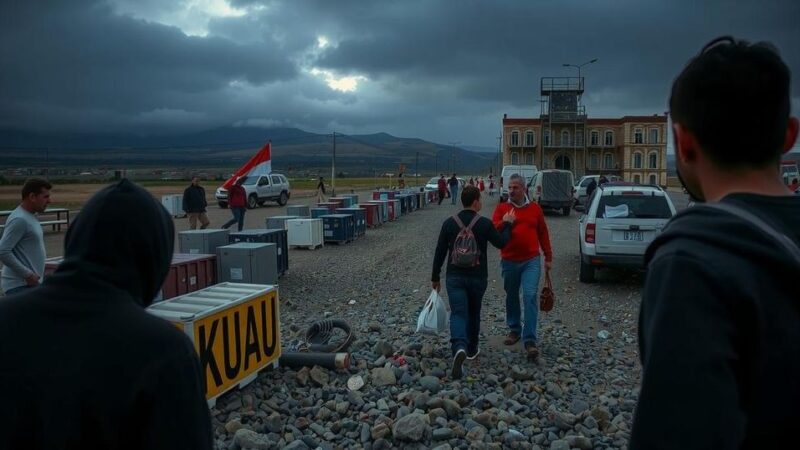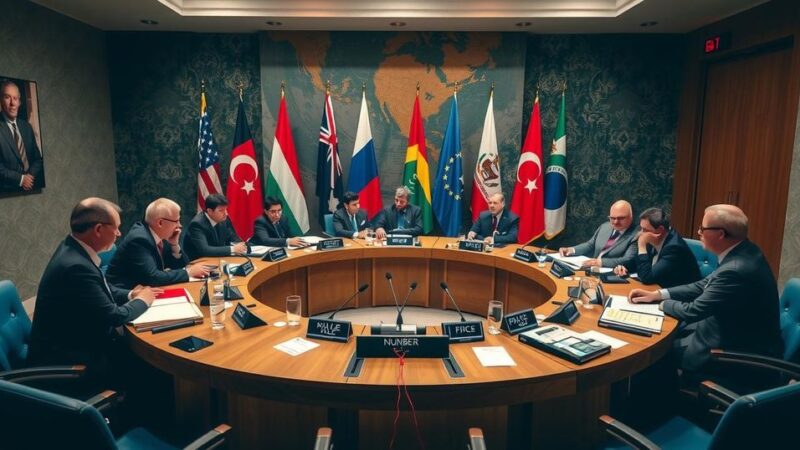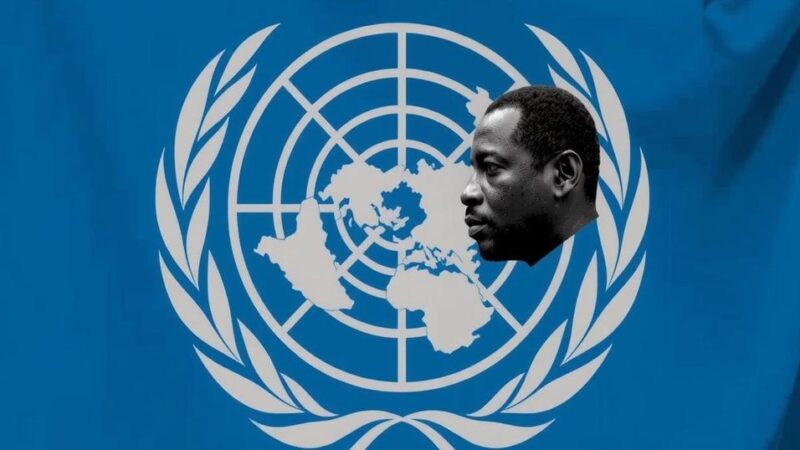G20 leaders in Rio emphasized the need to dramatically scale climate finance from billions to trillions as COP29 negotiations continue in Baku. While they acknowledged outcomes from COP28, they did not explicitly address fossil fuel transitions. Key discussions are occurring regarding agriculture and water management as integral components of climate adaptation and resilience.
On Tuesday, G20 leaders convened in Rio, delivering a resolute directive to the negotiating delegates at the ongoing UN climate discussions in Baku. They underscored the urgent necessity to elevate climate finance from billions to trillions, encompassing diverse funding sources. Although the declaration acknowledged the favorable outcomes from the prior COP28 meeting regarding fossil fuel transitions, it did not explicitly emphasize a shift away from fossil fuels. This communiqué arrives before the conclusion of COP29, set for Friday, where discussions surrounding increased funding for loss and damage alongside clean energy advancement continue to progress sluggishly. The UN’s climate chief, Simon Stiell, conveyed that the G20’s message to their negotiators at COP29 emphasized a new financial goal that aligns with the interests of all nations. He stressed the importance of advancing financial reforms to guarantee that robust climate initiatives remain accessible to all countries amid mounting debt crises. UN Secretary-General António Guterres, present at the gathering, asserted that failing to reach consensus in Baku would undermine future climate ambitions, particularly emphasizing the significance of the Amazon ecosystem. In tandem with negotiations, numerous events at COP29 are highlighting agriculture, food security, and water management. Reports from the UN Food and Agriculture Organization (FAO) indicate that agrifood systems are recognized by countries as vital for climate adaptation and mitigation. FAO representatives called attention to the decline in funding for these vital systems, noting the need for transformative investments. Experts at the conference spotlighted the critical role of agriculture in addressing climate change while also acknowledging the adverse impacts of existing farming practices on environmental sustainability. Focused panel discussions addressed the multi-faceted challenges posed by climate-related water issues, calling for cooperation in managing shared water resources to mitigate potential conflicts. Lastly, the overall landscape of climate negotiations remains cautious, with activists expressing mixed feelings toward G20 statements on climate finance amid ongoing deadlocks.
The discussion around climate finance is pivotal as international leaders gather to address the pressing threat of climate change. G20 countries, as major emitters and economic powers, play a significant role in shaping global climate policies. The urgency for more substantial financial commitments for climate action has reached a critical point as countries face escalating climate impacts while navigating financial constraints. This scenario is further complicated by the ongoing negotiations at COP29, where decisive agreements are anticipated to lay the groundwork for future climate action and funding strategies, especially in the context of the upcoming COP30. Moreover, agriculture, food security, and water management emerge as central themes in these discussions due to their intertwined relationships with climate resilience and economic stability. Harnessing agrifood systems not only supports the fight against hunger but also serves as a platform for developing climate-adaptive strategies that mitigate environmental degradation.
In summary, the recent G20 summit in Rio provided substantial momentum for COP29, with leaders advocating significantly increased climate finance. While this message represents a step forward, the vagueness surrounding the transition from fossil fuels continues to elicit concern. The interactions at this conference underscore the intertwined nature of agriculture, water management, and climate action, which require coordinated global efforts to secure a sustainable and resilient future. As discussions progress, the dedication of leaders to bolster financial commitments will be vital to the success of upcoming climate initiatives, including COP30.
Original Source: www.eurasiareview.com





